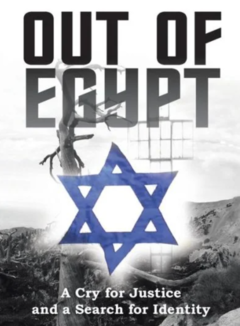The Turning Point- Parshat Shemot/Exodus
01/08/2023 05:00:57 PM

The first two chapters of Exodus go from degradation to degradation. The Jewish people, the Children of Israel, are enslaved. Their suffering and oppression at the hands of the Egyptians is beyond all imagining - or rather, it would be if we had not been subjected to like acts of cruelty just a generation ago. The blood of our children fills the Nile. And from Heaven - silence.
Where is the prophecy of Jacob: I will surely remember you and I will take you out of Egypt to a good land, a land flowing with milk and honey...? Where is the awaited miracle?
And then... it comes. The beginning of the redemption arrives from the most unlikely place imaginable. Here's what the Torah says: And in the passing of many days that the King of Egypt died. The Children of Israel groaned from the slavery and they cried out; and their cry for help rose up to G-d from the slavery. G-d heard their outcry and G-d remembered the Covenant with Abraham, Isaac and Jacob. G-d looked upon the Children of Israel and G-d knew their pain.
Do you see it? The first glimmer of redemption doesn't come from above but in the outcry of the poor slaves. It is that cry that awakens the remembrance of the Covenant. Only then does G-d call to Moses from the Burning Bush and the story of the Exodus begins.
It all started with an act of protest, an outcry for justice and mercy. With moral outrage.
The Chofetz Chaim, Rabbi Yisrael Meir Kagan, taught that during the "good" years in Egypt when Joseph was running the show, the Israelites little by little came to adopt the Egyptian mindset of hierarchy and power, of pantheons and divine kings ruling serfs. So for all the years of oppression and suffering, the brainwashed Children of Israel thought that what they were going through was just the way of the world - the strong preying upon the weak, the powerful on the powerless. What good did protesting do? It's just the way things are. After all, didn't we bring this upon ourselves in some way?
Only when Pharaoh died and a new Pharaoh continued the oppression and cruelty did we begin to emerge from the spell. An older, more primal, higher spiritual selfhood reawakened. What was happening to us was wrong, was evil, was in opposition to the justice upon which the world was founded. And we cried out for justice.
And that outcry, that originated with us, was the turning point. That outcry was answered with redemption.
The beginning of all growth and all change is a profound rejection of the status quo. The story of Abraham smashing the idols resonates. Only when the shadows have been cleared away does the light come in. Rebellion and faith are not opposites: the one is the prerequisite for the other.
The Hasidic masters are insistent that we see ourselves in our own personal Egypt and in need of our own personal Exodus. Every day, they say, we must ask ourselves what are the injustices and limitations that we tacitly agree to, that we surrender to. Thomas Jefferson famously said that we need a revolution every twenty years. Torah says that we need one every day.
Shabbat Shalom
